-
About
- About Listly
- Community & Support
- Howto
- Chrome Extension
- Bookmarklet
- WordPress Plugin
- Listly Premium
- Privacy
- Terms
- DMCA Copyright
- © 2010-2025 Boomy Labs
 Erika Yigzaw
Erika Yigzaw
Listly by Erika Yigzaw
My favorite resources about bees, beekeeping, particularly natural and organic beekeeping, and honey. I started keeping bees at our lavender farm, SherwoodLavender.com, after I did a counting exercise for Master Gardeners and found very few honey bees in my orchard. My bees are one of my favorite parts of our sustainable farm! Feel free to add your favorite resources!

Honey Bee Breeding, Genetics, and Physiology Research
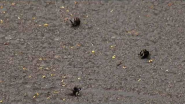
Pesticide banned following 50,000 bee deaths Posted: Thursday, June 27, 2013 11:47 PM EST Updated: Friday, July 26, 2013 10:27 AM EST HILLSBORO, OR (KPTV) - More than a dozen pesticides are now banned in Oregon after 50,000 bees were found dead in a Target store parking lot earlier this month.

Rudolf Steiner College * 9200 Fair Oaks Boulevard, Fair Oaks, CA 95628 * 916-961-8727 * Contact Us
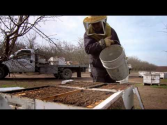
An excerpt from the documentary by Taggart Siegel and Jon Betz. In 1923, Rudolf Steiner, a scientist, philosopher & social innovator, predicted that in 80 to 100 years honeybees would collapse. His prediction has come true with Colony Collapse Disorder where bees are disappearing in mass numbers from their hives with no clear explanation.
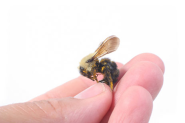
Remember the case of the leaked document showing that the EPA's own scientists are concerned about a pesticide it approved that might harm fragile honeybee populations? Well, it turns that the EPA isn't the only government agency whose researchers are worried about neonicotinoid pesticides.
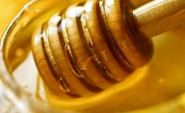
Five people and two U.S. honey processors were charged with federal crimes last week as a result of an investigation into illegal importation of honey from China, known as "Honeygate," led by the U.S. Immigration and Customs Enforcement and Homeland Security Investigations.
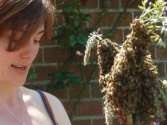
The Natural Beekeeping Trust aims to promote awareness of sustainable beekeeping which is determined by our understanding of the essential needs of the bees. We believe that encouraging a wider adoption of "bee guardianship" - keeping bees for the bees' sake - as well as actively supporting organic/biodynamic agriculture and horticulture, will make a major contribution to ensuring the long term health of the honeybee.
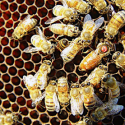
What's killing the bees? If you've been watching the news, you might answer: "Colony collapse disorder." Yet after the winter of 2011-2012, beekeepers only attributed 8 percent of their wintertime honeybee-hive losses to colony collapse disorder. Other reasons for hive deaths were much more common, including ailing queen bees, to which beekeepers attributed 32 percent of their dead hives.
![Contrasting effects of mass-flowering crops on bee... [Ecol Appl. 2013] - PubMed - NCBI](http://media.list.ly/production/27897/521989/journal-pone-0072724-g001_185px.png)
PubMed comprises more than 23 million citations for biomedical literature from MEDLINE, life science journals, and online books. Citations may include links to full-text content from PubMed Central and publisher web sites.

Abstract Pollinators provide an important service in many crops. Managed honey bees ( Apis mellifera L.) are used to supplement pollination services provided by wild bees with the assumption that they will enhance pollination, fruit set and crop yield beyond the levels provided by the wild bees.

You would think something this simple would not be controversial, but it is. On several fronts. First, WHEN do you feed? "Q. When is the best time to feed the bees? "A. The best thing is never to feed them, but let them gather their own stores.
bees, mites, varroa, history and treatment
Honeybees are under attack...
Oregon State University Extension Publication.
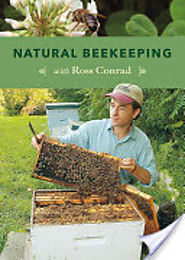
Today's beekeepers face unprecedented challenges, a fact that is now front-page news with the spread of "colony collapse disorder." Newly introduced pests like varroa and tracheal mites have made chemical treatment of hives standard practice, but pest resistance is building, which in turn creates demand for new and even more toxic chemicals.
